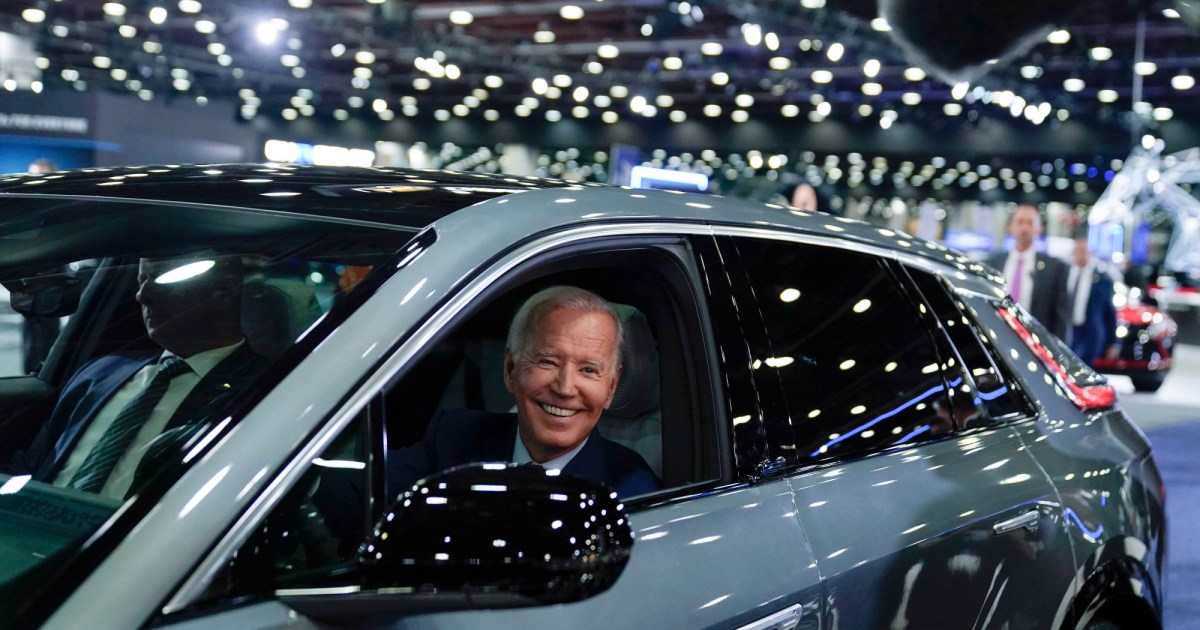On September 15, the United Auto Workers began a targeted strike against Ford, GM, and Stellantis (the conglomerate that includes Chrysler) in an effort to secure higher wages, a four-day work week, and other protections in the union’s next contract. The strike is a huge development for American workers, but it’s also a big deal for President Joe Biden—these car companies are central to his green-infrastructure agenda. The union wants assurances that the industry’s historic, heavily subsidized transition toward electric vehicles will work for them, too.
Biden, whose National Labor Relations Board has been an ally of labor organizers in fights against companies such as Amazon and Starbucks, has called himself “the most pro-union president in American history.” He has expressed support for the UAW’s cause (workers “deserve their fair share of the benefits they helped create,” he said last week) and has sent aides to Michigan to assist in the negotiations.



The rail union is quite pleased with how things played out according to IBEW’s Railway Department Director Al Russo.
…snip…
He did do the right thing with the railway workers. The strike would likely have had a massive economic impact across the nation and in many different industries. Avoiding the strike while still getting the workers much of what they wanted was a very good result. Not perfect, but as you said, don’t let perfect be the enemy of good.
IBEW is only one of 13 rail unions, and according to another Lemmy user, their union officials are some of the more conservative ones, preferring lobbying Democrats over strikes and popular labor action. I wouldn’t go to their statement to see what rank-and-file union members preferred, as they tried to negotiate weaker deals in the beginning and have generally been going against what the majority of their workers would have preferred, according to what I’ve heard from online union members and from places like the Railroad Workers United (a coalition of rank-and-file members across all the rail unions). It also didn’t address Precision Scheduling or inadequate staffing or all sorts of other things they probably could have gotten if their leverage wasn’t removed by the President and Congress.
People need to learn what their labor is capable of and politicians interfering absorbs energy from the workers. People also need to stop thinking of themselves as consumers (oh no! My Christmas presents won’t arrive in time!), and think of themselves as workers in solidarity with all other wage workers.
I 100% agree with Flying Squid that it was the wrong way to go about it, but he’s doing better now.